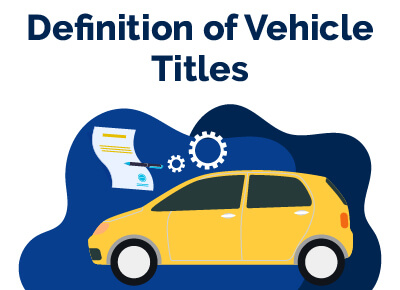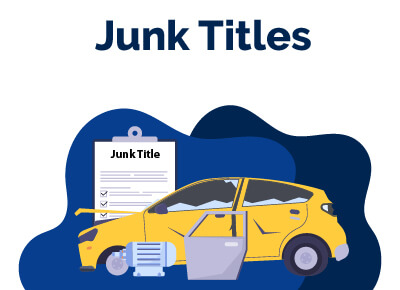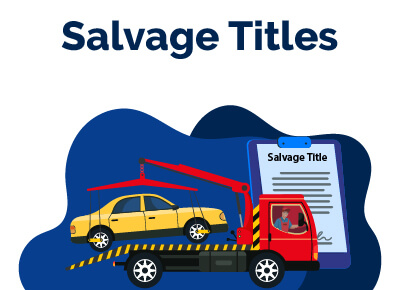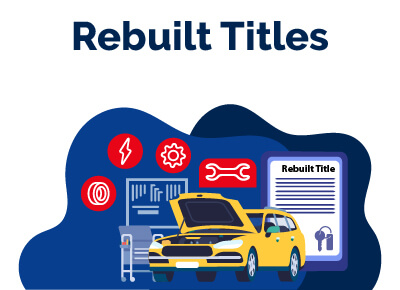Understanding Vehicle Titles: Junk, Salvage, and Rebuilt Titles
May 18, 2023

Chris is Head of Content for FindTheBestCarPrice and is based out of Philadelphia, PA. As a seasoned automotive industry analyst and car enthusiast, he ensures the highest level of quality across all our content and curates our picks for the best deals each month.
Chris studied information systems and marketing at Drexel University and writes about a wide range of topics ranging from car buying tips to troubleshooting common mechanical issues.
When he’s not thinking about cars, he likes to stay in with his dog and make an “attempt” to finish a crossword puzzle (he’s not quite at the Saturday/Sunday level…yet). As a former cheesemonger, Chris still has a “sharp” passion for all things cheese, and his fridge is always loaded with it!
Chris also has a passion for things that go fast, and drones are no exception. He spends some of his time writing for Dronesourced.
What You Need to Know Before Buying or Selling a Car
When it comes to buying or selling a car, understanding the vehicle's title is critical. A vehicle title is a legal document that serves as proof of ownership, and it is essential to have a clean title to ensure a smooth transaction. However, not all vehicle titles are created equal, and some may indicate that the vehicle has been through significant damage, leading to a non-clean title. The team at FindTheBestCarPrice.com has created this handy guide to show you the different types of vehicle titles, specifically junk, salvage, and rebuilt titles, and what they mean for vehicle owners and potential buyers.
Table of Contents
Definition of Vehicle Titles

Before diving into the different types of vehicle titles, let's define what a vehicle title is. A vehicle title is a legal document that identifies the owner of a vehicle and provides information about the vehicle's history, such as its make, model, and year. It also indicates whether the vehicle has a clean or non-clean title, which refers to whether the vehicle has been through significant damage, such as a collision or flood, or if it has any other issues that may affect its value.
Importance of Understanding Different Types of Vehicle Titles
Understanding the different types of vehicle titles is crucial for both buyers and sellers. As a buyer, it is essential to know what type of title the vehicle has, as this can impact its value and safety. As a seller, it is crucial to be upfront about the vehicle's title and disclose any issues to potential buyers.
Brief Overview of Junk, Salvage, and Rebuilt Titles
Junk, salvage, and rebuilt titles are all non-clean titles that indicate that a vehicle has been through significant damage. However, each title has different implications, and it is essential to understand what they mean before buying or selling a car.
Junk Titles

Definition of a Junk Title
A junk title is issued to a vehicle that is deemed unsalvageable or not roadworthy. This may be due to significant damage caused by a collision or natural disaster, such as a flood. Once a vehicle is issued a junk title, it is generally considered to have little to no value.
Reasons Why a Vehicle May Be Issued a Junk Title
A vehicle may be issued a junk title for several reasons. For example, if the vehicle has been severely damaged and cannot be repaired safely or if it has been abandoned and is no longer roadworthy.
What It Means for the Vehicle Owner and Potential Buyers
If a vehicle has a junk title, it means that the vehicle is not roadworthy and cannot be driven legally. In some cases, the vehicle may be sold for parts or scrap metal. If a buyer wants to purchase a vehicle with a junk title, they need to be aware that it may not be possible to register the vehicle for road use or obtain insurance.
Restrictions on Driving and Selling a Car with a Junk Title
In most cases, a vehicle with a junk title cannot be driven legally on public roads. Additionally, selling a vehicle with a junk title may be challenging, as potential buyers may be hesitant to purchase a vehicle with no roadworthiness or value.
Salvage Titles

A salvage title is issued to a vehicle that has been severely damaged or declared a total loss by an insurance company. There are several reasons why a vehicle may be issued a salvage title, including collision damage, flood damage, theft recovery, or vandalism.
What it means for the vehicle owner and potential buyers
If a vehicle has a salvage title, it indicates that it has sustained significant damage and may not be safe to operate without repairs. The value of a vehicle with a salvage title is generally lower than that of a comparable vehicle with a clean title, and insurance companies may be hesitant to provide coverage. Additionally, many lenders will not finance a vehicle with a salvage title.
Restrictions on driving and selling a car with a salvage title
In many states, a vehicle with a salvage title cannot be driven until it has been repaired and inspected by a state-approved mechanic. Additionally, some states may require additional documentation or inspections before a salvage vehicle can be sold.
Rebuilt Titles

A rebuilt title is issued to a vehicle that was previously issued a salvage title and has been repaired and restored to roadworthy condition. This process typically involves significant repairs, including replacing major components such as the engine, transmission, or suspension.
Reasons why a salvage vehicle may be rebuilt
Some individuals may choose to purchase a vehicle with a salvage title at a lower price and repair it themselves, while others may purchase a vehicle with a salvage title that has already been repaired by a mechanic.
What it means for the vehicle owner and potential buyers
A vehicle with a rebuilt title can be a viable option for those looking to save money on a vehicle purchase. However, it is important to note that the quality of repairs can vary greatly, and it may be difficult to determine the true condition of the vehicle. Additionally, insurance companies may charge higher rates for vehicles with rebuilt titles, and lenders may be hesitant to finance them.
Restrictions on driving and selling a car with a rebuilt title
In many states, a vehicle with a rebuilt title must pass a state inspection before it can be registered and driven on the road. Additionally, some states may require additional documentation or inspections before a rebuilt vehicle can be sold.
Factors to Consider Before Buying or Selling a Car with a Junk, Salvage, or Rebuilt Title

If you are considering buying or selling a vehicle with a non-clean title, there are several factors to consider:
1. Vehicle history reports
Before purchasing a vehicle with a non-clean title, it is important to obtain a vehicle history report to determine the extent of damage and repairs. This report can provide valuable information on the vehicle's previous owners, accident history, and maintenance records.
2. Cost of repairs
If you are considering purchasing a vehicle with a salvage or rebuilt title, it is important to have a thorough inspection performed by a qualified mechanic. This inspection can help you determine the extent of repairs needed and the potential cost.
3. Safety concerns
Vehicles with non-clean titles may have sustained significant damage that can affect their safety and reliability. It is important to thoroughly inspect the vehicle and ensure that all necessary repairs have been made before driving it on the road.
4. Insurance considerations
Insurance companies may charge higher rates or refuse coverage altogether for vehicles with non-clean titles. It is important to research insurance options before purchasing or selling a vehicle with a non-clean title.
Knowing the Ins and Outs of Vehicle Titles
Understanding vehicle titles is an important part of the car-buying and selling process. Junk, salvage, and rebuilt titles indicate that a vehicle has sustained significant damage and may have limitations on driving and selling. Before purchasing or selling a vehicle with a non-clean title, it is important to do your due diligence and consider the vehicle's history, cost of repairs, safety concerns, and insurance options. By taking these factors into account, you can make.
Best Car Deals by Category
Posted in Car Buying Tips |




